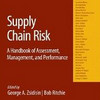 Should we actually bother to spend time and money on disaster mitigation, or should we rather focus on preparing for disaster recovery? Is re-active better than pro-active? The BBC World News has an interesting program called the world debate, that puts the important questions to those in the spotlight, and usually this is not the most exciting program. It’s a panel discussion, where representatives from global politics, finance, business, the arts, media and other areas come together and discuss various matters. More often than not, for the few and selected, but not for the many, and not for me. This morning, however, the topics was disasters and risks, and instead of switching off, as I usually do, I kept watching, and I was taken aback by the diversity of the arguments.
Should we actually bother to spend time and money on disaster mitigation, or should we rather focus on preparing for disaster recovery? Is re-active better than pro-active? The BBC World News has an interesting program called the world debate, that puts the important questions to those in the spotlight, and usually this is not the most exciting program. It’s a panel discussion, where representatives from global politics, finance, business, the arts, media and other areas come together and discuss various matters. More often than not, for the few and selected, but not for the many, and not for me. This morning, however, the topics was disasters and risks, and instead of switching off, as I usually do, I kept watching, and I was taken aback by the diversity of the arguments.
Disasters: Prepare or React?
Today’s topic was centered around disasters and their impact:
To what extent can we really reduce the dangers from future disasters?
Does investing in prevention divert funds from rescue efforts when disasters do occur?
Why is it difficult to persuade governments and individuals to protect themselves against disasters?
What needs to be done to cut risk, and who should do it?
And with climate change do all these questions need an urgent answer?
The panel had widely diverging views, so this debate was indeed intense, swing from one end of the scale to the other.
The panelists
Todays’s panelists were:
- Arjun Katoch
- Chief, UN Disaster Assessment and Coordination team
- Loren Legarda
- Philippine Senator, possible 2010 presidential candidate and the UN champion of Disaster Risk Reduction in the Asia Pacific region.
- Guido Bertolaso
- Head of Italy’s Civil Protection Agency.
- Edward Borodzicz
- Professor of risk management at Portsmouth Business School. Author of Risk, Crisis and Security Management.
(See links to panelists’ websites below)
To mitigate risk or not to mitigate risk
The most interesting was how the panelists differed in how to address risk, should risk be mitigated, or should be just accept it, and rather focus our efforts on preparing for dealing with the consequences. Basically this is being proactive versus being reactive. Should governments spend large sums of money on mitigation, on building up rescue and recovery capabilities, or should we rather tell people how can they can survive as long as possible if no rescue arrives, and in that manner reduce the impact. The basic message is that the government can only do so much, you have to do the rest yourself. On the other hand, the government must also provide the funds and opportunities, the legal and economical framework, for communities to prepare themselves. In essence, what the program ended with, was that there while there is a mood towards prepare, reality often leaves us only one choice: to react.
Links to the panelists
Reactions
Most recently (2009/07/20) I found this reaction to the programme on rovinginsight.org, where Loreen Neville, who works in a security company and is the Head of Investigations and who is also responsible for formulating security field operational procedures for clients, had this to say to the above questions:
Being mentally and physically prepared for natural disaster and man made disasters are necessary rather than to react. Pro-action rather than post-action. […] Many governments focus too much on institutions for risk reduction research. […] It is difficult to persuade governments and individuals to protect themselves against disaster because people tend to take disasters for granted. […]
Read the full reaction here:
- rovinginsight.org: BBC World Debate Disasters: Prepare or React?
Related: Resilient organizations
New Zealand has long realized its exposure to hazards and disasters and in 2004 embarked on a six-year research project designed to assist organizations in recovering their economic competitiveness after hazard events:
- resorgs.org.nz: Resilient Organisations
Related: husdal.com
- husdal.com: Resilience revisited
- husdal.com: The six ways of dealing with risk
- husdal.com: Risk management: contingent versus mitigative
- husdal.com: How New Zealand prepares for disasters
- husdal.com: Risk visualization – can it really be that dangerous?












